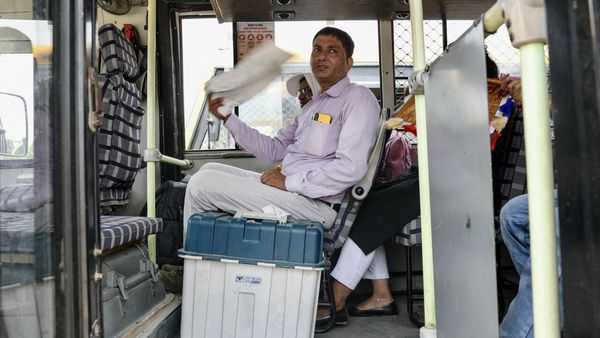The Tamil Nadu Prevention of Dangerous Activities of Bootleggers, Cyber Law Offenders, Drug Offenders, Forest Offenders, Goondas, Immoral Traffic Offenders, Sand Offenders, Sexual Offenders, Slum Grabbers and Video Pirates Act of 1982 is probably the only law with such a long title. However, in common parlance, it is referred to shortly as the Goondas Act and the legal professionals call it Act 14 of 1982.
It is a preventive detention law that empowers the State to detain people in prison, without a trial, for preventing “dangerous activities prejudicial to the maintenance of public order.” It is similar to the National Security Act (NSA) of 1980 enacted by the Parliament to maintain public order and national security. The Madras High Court is flooded with habeas corpus petitions challenging the detention orders passed under the Goondas Act.
History
When it was enacted in 1982, the law covered only five classes of persons - bootleggers, drug offenders, goondas, immoral traffic offenders and slum grabbers. The forest offenders were included in 1988, video pirates in 2004 and sand offenders in 2006. Cyber law offenders and sexual offenders were added to it in 2014. Every time, a new category was added, the name of the law underwent a change to list out the classes of offenders in an alphabetical order.
The first amendment to the Act was made in 1986 when the expression ‘Dangerous Drugs Act, 1930’ was replaced with the ‘Narcotic Drugs and Psychotropic Substances Act, 1985’ for the purpose of defining the drug offenders. Then, Section 5A (which states that if a preventive detention order had been passed on multiple grounds, it could not be termed invalid just because one of those grounds was found to be vague or irrelevant) was also inserted into it.
The definition of the term ‘goonda’ under Section 2(f) of the Act was amended once in 2008 and again in 2014. During the second amendment, the word ‘habitually’ was omitted from the definition thereby paving way for invoking the Goondas Act even against a first time offender. An amendment made in 2022 provided the release of a detainee for attending the funeral of close relatives such as father, mother, brother, sister, wife, husband, son and daughter.
How is the Act invoked?
A recommendation for detaining a person under the Goondas Act generally emanates from an Inspector of Police though the ultimate authority for passing the detention order vests with the Collectors and Commissioners of Police. The law requires the detaining authorities to forward the detention orders, along with the grounds of detention and all relevant supporting documents, to the State government forthwith.
Though the initial detention order could be passed for a period of three months, and then extended every three months for a maximum period of 12 months, Section 3(3) of the 1982 Act states that no such detention order could remain in force for more than 12 days unless the State government approves it in the meantime. The detention order must also be served on the detainee immediately so that he/she could make a representation to the government to not approve it.
Advisory board
Since preventive detention leads of curtailment of the freedom of movement of an individual without trial, the law provides for sufficient number of checks to ensure that a person does not get detained without sufficient cause. Section 9 of the Act requires the State government to constitute an Advisory Board consisting of a chairman and two members who are either sitting or retired High Court judges or who are qualified to be appointed as judges of a High Court.
Every detention order must be placed before the Advisory Board within three weeks along with the representations, if any, made by the detainee. The Board is expected to go through the grounds of detention, hear the detainee, if required, and then come to a conclusion as to whether there was sufficient cause for having detained that particular individual. The Board’s opinion must be submitted to the government within seven weeks of the detention.
If the Advisory Board is satisfied that there is sufficient cause, then the government could continue to detain the person concerned for a maximum period of 12 months by extending the detention every three months but if the Board does not find sufficient cause, then the government must revoke the detention order.
Habeas corpus petitions
The safeguards provided to the detainees do not end with this. Even after the Advisory Board finds sufficient cause for the passing the detention order, it could still be challenged in the High Court by way of a habeas corpus petition filed either by the detainee or his close relatives. The grounds of challenge could vary from alleging non application of mind by the detaining authority to undue delay in considering the representations made by the detainees.
Even supply of illegible copies of documents or providing a document in a language which the detainee does not understand, thereby curtailing his/her right to make an effective representation to the State government, could also be valid grounds to challenge such detention orders before the High Court. Invariably, a majority of the preventive detention orders get quashed by the High Court for one reason or the other.
Power to revoke
Section 14 of the 1982 Act empowers the State government to revoke or modify the detention orders at any time. It also makes it clear that either the revocation or expiry of a detention order shall not be a bar for passing another detention order against the same person. However, if no fresh facts had arisen after the revocation or expiry, then the subsequent detention period should not extend beyond 12 months from the date of the first detention.
The Act further makes it clear that no suit, prosecution or other legal proceeding could be initiated against the State Government or any officer for anything done in good faith or intended to be done in pursuance of the law.







